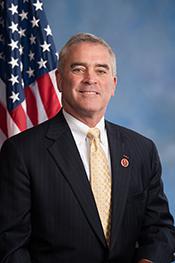0
Commonsense Reporting Act of 2022
12/30/2022, 12:04 AM
Summary of Bill HR 7774
The bill aims to reduce the burden on taxpayers by making it easier for them to report their income and expenses accurately. It also seeks to improve compliance with tax laws by providing clearer guidelines on what information needs to be reported.
One of the key provisions of the Commonsense Reporting Act is the establishment of a standardized format for reporting income and expenses. This format is designed to be user-friendly and easy to understand, making it simpler for taxpayers to file their taxes correctly. Additionally, the bill includes measures to enhance the accuracy of reported information, such as requiring businesses to provide more detailed documentation of their income and expenses. This is intended to reduce the likelihood of errors and inaccuracies in tax filings. Overall, the Commonsense Reporting Act of 2022 aims to make the tax reporting process more efficient and less burdensome for individuals and businesses. It seeks to strike a balance between simplifying reporting requirements and ensuring compliance with tax laws.
Congressional Summary of HR 7774
Commonsense Reporting Act of 2022
This bill addresses the eligibility verification process for the premium assistance tax credit and cost-sharing subsidy under the Patient Protection and Affordable Care Act (PPACA). It requires the Department of the Treasury to develop and implement a reporting system that allows employers to voluntarily report information about their health plans for the current plan year prior to the beginning of open enrollment. The bill also allows electronic transmission of employee and enrollee statements and permits Treasury to accept full names and dates of birth in lieu of dependents' and spouses' Social Security account numbers.
The bill also allows certain large employers who do not offer their employees minimum health care coverage 90 days to appeal an assessment for not providing such coverage.
The Government Accountability Office must evaluate (1) for the period beginning on January 1, 2015, and ending on December 31, 2020, the notification of employers by PPACA exchanges of the eligibility of employees for advance payments of the premium assistance tax credit or cost-sharing subsidies; and (2) for calendar year 2023, the functionality of the prospective reporting system established by this bill, including the accuracy of information collected.


